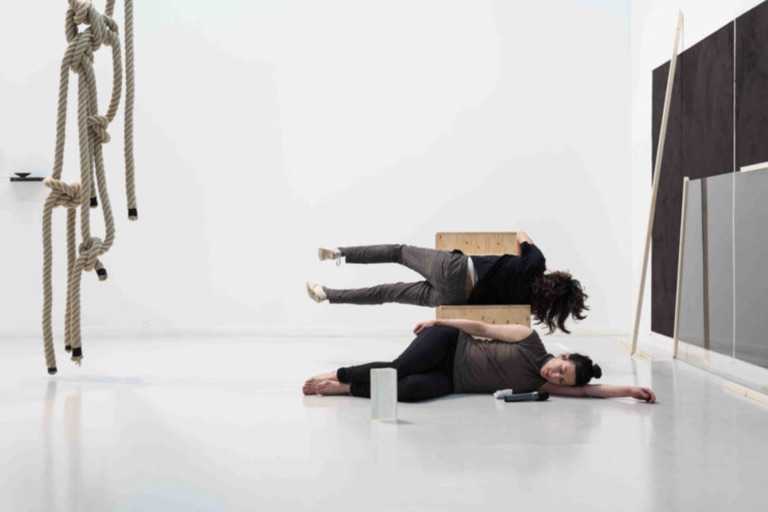How can we reform the prevailing trope of learning being a competitive, mentally demanding experience? How can we integrate other learning processes, beyond the common optic experience? How can the relation between student and teacher be more democratic? How can we support the practice of self-reflection and individual interpretation ? How can we think differently about limitation? On the 28th of October Yael Davids ( who was a much loved returning faculty member at DAI till 2017) will present "A Daily Practice - One is always a plural", a public talk and a short Feldenkrais class and will demonstrate a sitting position as a response to the physical position of the attendees (online and offline) and to the Covid-19 limitations in spatial movement. Join her in the flesh at the Rietveld Academie in Amsterdam or live-streamed ( find the link here).
28 Oct Yael Davids (lecture)
LECTURE: A Daily Practice – One is always a plural
2:00–3:30PM
Rietveld Gym & live-streamed @studiumgenerale.rietveldacademie.nl
*Only a limited number of 40 seats is available.
Get your ticket at the front desk!
Resilient Bodies
Strategies and Practices for Fluid Embodiments
Studium Generale Rietveld Academie
The Feldenkrais method is a method of somatic learning that invites a change of bodily habits from within. Yael is building on her three-year research in the context of the Creator Doctus (CrD) program, which was supported by the Gerrit Rietveld Academie and the Van Abbemuseum and which she successfully concluded with a public defense on 28 September this year.
|
YAEL DAVIDS (Jerusalem, 1968) studied visual arts at the Gerrit Rietveld Academie in Amsterdam, sculpture at the Pratt Institute in New York and choreography and dance education at the Remscheid Akademie in Remscheid. In her work she examines the capacities in which the body operates as a documentary vessel. She studies how collective heritage and socially charged narratives become intertwined with the individual’s biography and sensibilities, surmounting to an experiencing of the concrete world that is defined by a unique finitude. Over the past five years, Davids has formally trained in the Feldenkrais Method. She uses the Method as a research device for comprehending the inner-workings of structures and prevailing tendencies — bodily, institutionally, artistically. Her three-year-long research trajectory focuses on learning conditions and duties of care, and addresses a range of questions such as: How can we reform the prevailing trope of learning being a competitive, mentally demanding experience? How can we integrate other learning processes, beyond the common optic experience? How can the relation between student and teacher be more democratic? How can we support the practice of self-reflection and individual interpretation. How can we think differently about limitation?
|

